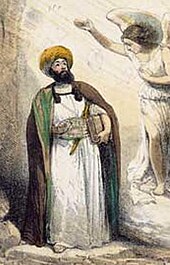In the intricate tapestry of Bahá’í teachings, the concept of moral strength and manhood emerges as a pivotal theme, gaining unique insight from the life and character of Muhammad Ali. As a historical figure who transcended the confines of his sport, Ali embodied the quintessence of moral fortitude, challenging societal norms and redefining masculinity for generations. This exploration delves into Ali’s virtues through a Bahá’í lens, illustrating how his principles resonate with key teachings and contribute to a broader understanding of manhood.
To commence this analysis, it is essential to contextualize the teachings of Bahá’u’lláh, which emphasize the importance of character, virtue, and the pursuit of justice. The Bahá’í faith posits that true manhood is not defined merely by physical prowess or dominance but rather by an individual’s capacity for compassion, humility, and moral clarity. Muhammad Ali’s legacy serves as a potent exemplar of these ideals. His unwavering commitment to social justice, particularly in the context of civil rights, illuminated the profound moral strength that true manhood demands.
The first dimension of Ali’s character to explore is his audacity—a characteristic reminiscent of the Bahá’í principle of standing up against oppression. Born Cassius Clay, Ali’s defiance during the Vietnam War, notably his refusal to be inducted into the military, exemplified an extraordinary moral stance. He famously declared that he had “no quarrel” with the Vietnamese people, encapsulating a belief in universal human rights that transcended nationalistic fervor. This assertion not only resulted in personal sacrifices, including the stripping of his title and a significant portion of his boxing career, but also underscored the Bahá’í tenet of advocating for justice in the face of overwhelming adversity.
Moreover, Ali’s evolution from a brash young boxer to a reflective elder statesman resonates with the Bahá’í teaching of personal transformation. The faith underscores the necessity of continuous self-improvement, highlighting that the journey towards becoming a true man requires introspection and growth. Ali’s later years, punctuated by his philanthropic efforts and advocacy for peace, exemplified this transformative process. He emerged not merely as a champion in the ring but as a global ambassador for interfaith dialogue and humanitarian efforts—a powerful manifestation of the Bahá’í belief in the potential for every individual to foster unity among diverse communities.
Another salient aspect of Ali’s character is his dedication to the promotion of equality, particularly in relation to race. His outspoken nature in confronting racial prejudice and inequality aligns seamlessly with Bahá’í principles that promote the oneness of humanity. The emphasis on unity and equality is not just theoretical within the Bahá’í framework; it finds practical expression in various social initiatives worldwide. Ali’s life serves as an embodiment of the courageous pursuit of these ideals, revealing a model of manhood that thrives on the cultivation of relationships and the dismantling of barriers that divide humanity.
Furthermore, Ali’s resilience in the face of criticism and adversity invites reflection on how true manhood can be manifested through perseverance. A hallmark of Bahá’í teachings is the affirmation of strength in vulnerability, a dichotomy that Ali navigated with grace. The public ridicule he faced for both his religious beliefs and his political stances did not deter his resolve but instead fortified his commitment to his values. This dichotomy illustrates a critical aspect of manhood as articulated in Bahá’í scripture: moral strength often requires articulating one’s truth, regardless of societal backlash.
The narrative of Muhammad Ali is also interwoven with the theme of humility, an often overlooked dimension of manhood. While his bravado in the ring was legendary, it was coupled with an evolving sense of humility as he grew older. The Bahá’í faith extols humility as a pathway to spiritual enlightenment and interpersonal harmony. Ali’s eventual humility, observed during his later years, reflected the Bahá’í understanding that man’s worth is not derived from accolades but rather from his service to others. This transformation is pivotal; it communicates a powerful message that true manhood is rooted in selflessness and devotion to the well-being of the larger community.
Moreover, Ali’s relationship with spirituality provides an enlightening lens through which to evaluate his moral fortitude. Converting to Islam and embracing its tenets significantly influenced his worldview and moral framework. In the Bahá’í context, faith is presented as a catalyst for moral behavior and ethical living—an assertion that resonates with Ali’s personal journey. His reliance on spiritual principles to navigate life’s challenges underscores the importance of a stable ethical foundation in achieving a truly honorable manhood, one that can inspire others to actualize their potential.
In conclusion, Muhammad Ali’s life encapsulates the essential tenets of Bahá’í teachings, illustrating a nuanced dimension of manhood characterized by moral strength, resilience, and a commitment to justice. By challenging societal norms, advocating for equality, and embodying humility, Ali not only redefined what it means to be a man but also set forth a model of moral fortitude that transcends the realms of sport and enters the sphere of universal human dignity. His legacy serves as a call to action, inviting all to reflect on their own contributions to justice, equality, and the oneness of humankind—core themes that are integral to the Bahá’í faith.
